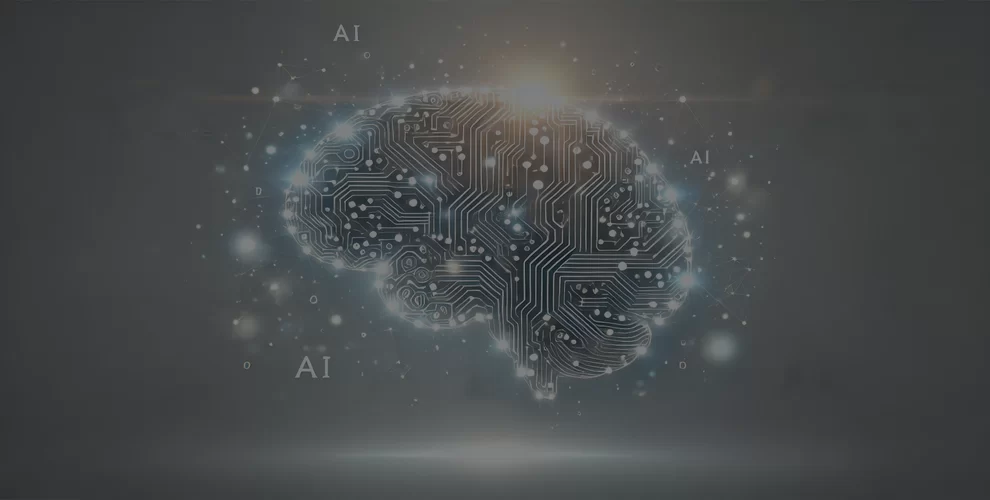
How Emotional Intelligence in AI Is Enhancing Human-Machine Interaction
Table of Contents
Introduction
Emotional intelligence (EI) in artificial intelligence (AI) is transforming how humans interact with machines.
By integrating emotional awareness into AI systems, we can create more empathetic and responsive interactions that enhance user experience.
This article explores the importance of emotional intelligence in AI, its benefits, practical applications, ethical considerations, and the future of this exciting technology.
Key Takeaways
- Enhanced User Experience: Emotional intelligence in AI improves user interactions, making them more natural and satisfying.
- Applications Across Industries: Emotionally intelligent AI is being used in healthcare, education, customer service, and more.
- Ethical Considerations: Implementing emotional intelligence in AI involves addressing privacy, consent, and data security issues.
Understanding Emotional Intelligence in AI
Definition and Components of Emotional Intelligence
Self-awareness
Self-awareness in AI refers to the system’s ability to recognize and understand its emotional state. This enables AI to adjust its responses and interactions based on its emotional context.
Self-regulation
Self-regulation involves managing and controlling emotional responses. AI systems with self-regulation can maintain appropriate behavior even when interacting with challenging or emotionally charged inputs.
Social skills
Social skills in AI include the ability to navigate social situations and respond appropriately. This includes understanding social cues and providing responses that are contextually suitable.
Empathy
Empathy allows AI to understand and share the feelings of users. This is crucial for applications such as virtual therapy or customer service, where understanding user emotions can significantly enhance interactions.
Motivation
Motivation in AI involves driving the system towards achieving its goals while considering the emotional context of interactions. This ensures that AI remains focused and effective in its tasks.
How AI Systems Process Emotions
Emotion Detection Algorithms
AI uses algorithms to detect emotions from various inputs such as text, voice, and facial expressions. These algorithms analyze patterns and indicators to identify the emotional state of the user.
Natural Language Processing (NLP)
NLP enables AI to understand and generate human language, allowing it to interpret emotional nuances in text and speech. This is essential for creating emotionally intelligent responses.
Machine Learning Models
Machine learning models train AI to recognize and respond to emotional cues. These models improve over time, enhancing the AI’s ability to understand and react to complex emotional inputs.
Benefits of Emotional Intelligence in AI
Improved User Engagement
Personalized Interactions
Emotionally intelligent AI can tailor interactions based on the user’s emotional state, providing a more personalized and engaging experience. This results in increased user happiness and loyalty.
Increased User Satisfaction
By understanding and responding to user emotions, AI can make interactions more pleasant and effective. This results in increased user satisfaction and a better overall experience.
Enhanced Customer Service
Better Issue Resolution
Emotionally intelligent AI can handle customer service inquiries more effectively by understanding the emotional context of the user’s issues. This leads to quicker and more satisfactory resolutions.
24/7 Availability
AI-powered customer service systems are available around the clock, providing consistent and empathetic support at any time. This ensures that users always have access to assistance when needed.
Applications in Mental Health
Virtual Therapy Assistants
AI-powered virtual therapy assistants can provide emotional support and guidance, helping users manage their mental health.
These systems use emotional intelligence to offer empathetic and personalized care.
Emotional Support Chatbots
Emotional support chatbots are designed to provide comfort and assistance to users experiencing emotional distress.
They use emotional intelligence to understand and respond to users’ needs, offering a supportive presence.
Practical Applications of Emotionally Intelligent AI
Healthcare
Patient Monitoring and Support
Emotionally intelligent AI can monitor patients’ emotional states and provide support, improving their overall well-being. This is particularly useful in managing chronic conditions and mental health issues.
Diagnostic Assistance
AI systems with emotional intelligence can assist healthcare professionals by providing insights into patients’ emotional states, aiding in more accurate diagnoses and personalized treatment plans.
Education
Personalized Learning Experiences
Emotionally intelligent AI can create personalized learning experiences by adapting to students’ emotional states. This helps in maintaining engagement and improving educational outcomes.
Student Engagement and Motivation
By understanding and responding to students’ emotions, AI can keep them motivated and engaged in their studies. This leads to better retention and academic performance.
Customer Service
Emotionally Responsive Chatbots
Emotionally intelligent chatbots can provide more effective customer service by understanding and responding to customers’ emotions.
This results in better problem resolution and a more positive customer experience.
Enhanced Customer Interaction
AI systems that can recognize and respond to emotions enhance customer interactions by providing more empathetic and personalized service.
This builds stronger customer relationships and loyalty.
Examples
AI in Mental Health
Virtual Therapists
Virtual therapists use emotional intelligence to provide mental health support. They can understand and respond to users’ emotions, offering personalized care and improving mental health outcomes.
Emotion Tracking
AI systems can track users’ emotional states over time, providing insights into their mental health and helping to identify patterns that may require intervention.
AI in Customer Support
Automated Issue Resolution
Emotionally intelligent AI can resolve customer issues more efficiently by understanding the emotional context. This leads to faster and more satisfactory solutions.
Personalized Responses
AI systems that use emotional intelligence can provide personalized responses based on the customer’s emotional state, improving the overall customer service experience.
AI in Education
Adaptive Learning Systems
Adaptive learning systems use emotional intelligence to adjust the learning experience based on students’ emotions. This helps in maintaining engagement and improving educational outcomes.
Emotional Feedback for Students
AI can provide emotional feedback to students, helping them understand their emotions and how they affect their learning. This supports emotional development and academic success.
Ethical Considerations and Challenges
Privacy and Data Security
Handling Sensitive Information
Emotionally intelligent AI systems must handle sensitive emotional data with care. Ensuring data privacy and security is crucial to maintain user trust and comply with regulations.
Ensuring User Consent
Users must be informed and consent to how their emotional data is collected and used. This transparency is essential for ethical AI deployment.
Bias and Fairness
Avoiding Algorithmic Bias
AI systems must be designed to avoid biases that can affect their emotional intelligence. Ensuring fairness in AI interactions is critical for ethical use.
Ensuring Equitable Treatment
Emotionally intelligent AI should provide equitable treatment to all users, regardless of their background. This promotes inclusivity and fairness in AI interactions.
Transparency and Trust
Clear AI Decision-Making Processes
AI systems should have transparent decision-making processes that users can understand. This builds trust and ensures that AI interactions are perceived as fair and reliable.
Building User Trust
Building trust with users involves transparent communication about how AI systems use emotional data.Trust is critical for the widespread acceptance of emotionally intelligent AI.
Future of Emotional Intelligence in AI
Advancements in Technology
Improved Emotion Detection
Ongoing advancements in AI technology will lead to better emotion detection capabilities, enhancing the accuracy and effectiveness of emotionally intelligent AI systems.
Integration with Other AI Technologies
Emotionally intelligent AI will increasingly integrate with other AI technologies, such as NLP and machine learning, to provide more comprehensive and sophisticated interactions.
Expanding Applications
New Use Cases in Different Industries
As emotional intelligence in AI continues to develop, new applications will emerge in various industries, from entertainment to finance, expanding the scope and impact of this technology.
Broader Acceptance and Implementation
With improvements in technology and ethical practices, emotionally intelligent AI will gain broader acceptance and implementation across different sectors, enhancing human-machine interactions globally.
Addressing Ethical Challenges
Developing Ethical Guidelines
Developing clear ethical guidelines for the use of emotionally intelligent AI is essential to address privacy, bias, and fairness concerns.
Promoting Responsible AI Use
Promoting responsible AI use involves educating users and developers about the ethical implications of emotional intelligence in AI and encouraging best practices.
Conclusion
Emotional intelligence in AI is revolutionizing human-machine interactions, making them more natural, empathetic, and effective.
However, it’s important to address ethical issues to ensure these technologies are used responsibly and fairly.
With ongoing advancements, the future of emotional intelligence in AI is full of exciting possibilities. Want to know more?
Check out our article on the top 10 AI innovations by OpenAI you need to know about!
FAQs
What is emotional intelligence in AI?
Emotional intelligence in AI refers to the capability of AI systems to recognize, interpret, and respond to human emotions, enhancing interactions by making them more empathetic and responsive.
How does emotional intelligence in AI improve user engagement?
Emotionally intelligent AI tailors interactions based on the user’s emotional state, providing a more personalized and engaging experience, leading to higher user satisfaction.
What are the ethical considerations for emotionally intelligent AI?
Ethical considerations include ensuring privacy and data security, avoiding algorithmic bias, and maintaining transparency in AI decision-making processes to build trust and ensure equitable treatment.
How is emotionally intelligent AI used in mental health?
Emotionally intelligent AI is used in virtual therapy assistants and emotional support chatbots to provide personalized mental health support, track emotional states, and offer empathetic care.
What is the future of emotional intelligence in AI?
The future of emotional intelligence in AI includes advancements in emotion detection, integration with other AI technologies, expanding applications across industries, and developing ethical guidelines to ensure responsible use.
Want to keep up with our blog?
Our most valuable tips right inside your inbox, once per month.
Error: Contact form not found.
WikiGlitz Team
Welcome to WikiGlitz, your ultimate destination for tech insights and innovation. Our expert team is dedicated to delivering free resources and professional advice on various technology topics, including Artificial Intelligence, Cyber Security, Cloud Computing, and more. We strive to empower our readers with up-to-date information and practical guidance, ensuring you stay ahead in the rapidly evolving tech landscape. At WikiGlitz, we are passionate about making complex technology accessible to everyone. Our team of seasoned experts curates content that is both informative and engaging, helping you understand and leverage the latest tech trends. Whether you're a tech enthusiast or a professional, WikiGlitz is your go-to source for reliable, expert-driven content. Join us on this journey to explore and embrace the future of technology.





